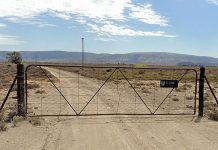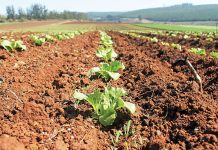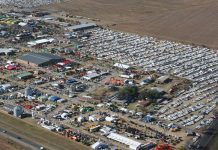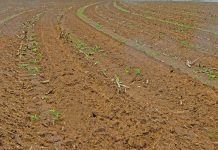
This annual event, celebrated globally on 5 June, highlights the urgent need for collective action to protect and preserve our environment.
This year World Environment Day is being celebrated under the theme ‘Accelerating land restoration, drought resilience and desertification progress’. The theme aims to highlight the importance of implementing interventions to address land degradation, desertification and minimising the impacts of drought at all levels.
READ You are what your food ate: the health connection in the soil
“As South Africans, we should combine local actions and land restoration techniques in the fight against land degradation, desertification, and drought impacts,” the Minister of Forestry, Fisheries and the Environment, Barbara Creecy, said in a statement.
She encouraged planting trees, rotating crops, using water retention techniques such as building retention ditches and cut-off drains, and applying organic manures and mineral fertilisers, among other methods to contribute to saving the land.
According to Creecy, desertification is caused by multiple forces, including extreme weather conditions, particularly drought.
It is also caused by human activities that pollute or degrade the quality of soils, negatively affecting land utility.
“These include poor land use management and depletion of soil nutrients due to unsustainable agricultural practices; deforestation; pollution such as waste; wind and soil erosion; expansion of agricultural land, overgrazing by livestock; over-extraction of natural resources; as well as mining activities that result in salination.”
Creecy emphasised that both desertification and land degradation were intricately linked to food and water security, poverty, urbanisation, climate change and biodiversity, and were therefore among the most critical environmental challenges.
The international community has pledged to restore one billion hectares of degraded land by 2030, she said.
READ Private landowners are vital custodians of biodiversity
“Land restoration is about creating sustainable livelihood opportunities for people, both small-scale farmers, indigenous peoples and local communities, businesses and entrepreneurs, women and youth to boost incomes, secure food and water supplies and make individuals and communities less vulnerable.
“Land restoration is a shared responsibility, and everyone has a role to play. Let us strive to restore ecosystems, mitigate desertification and combat drought, thereby forging a path towards a greener, healthier, and more prosperous planet for all,” Creecy said.
It’s here! #WorldEnvironmentDay is underway all across the globe.
Get all the latest #GenerationRestoration updates in celebration of environmental action to restore land and soil here: https://t.co/94j0j9Y7BE pic.twitter.com/pCkogBmGtm
— UN Environment Programme (@UNEP) June 5, 2024











